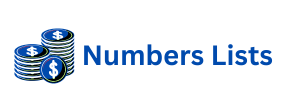Content writing forms the backbone of digital marketing. It drives organic traffic to websites. Businesses need strong online visibility. Search Engine Optimization (SEO) guides all content strategy. Two critical elements are keywords and backlinks. These components significantly boost search rankings. They help search engines understand content. Well-optimized content reaches the right audience. Ignoring them can hinder online growth.
Keywords are the terms people search for. Integrating them wisely is crucial. Backlinks, both external and internal, are vital. They build authority and improve navigation. A robust content strategy combines all these. This ensures maximum online impact. It creates a better user experience. Search engines favor relevant, authoritative sites. Quality content serves both users and algorithms.
Understanding these core elements is key. It transforms ordinary writing into powerful SEO assets. This post explores their importance. We will discuss their strategic implementation. Master these techniques for better results. Elevate your content writing approach. Achieve higher search engine positions. Drive more qualified visitors to your platform. This journey starts with smart choices.
The Foundation of Effective Content Writing for SEO
Digital content creation is more than just words. It is about visibility and relevance. Great content answers user questions. It provides real value to readers. But even the best content needs promotion. SEO provides the framework for this. It ensures your message finds its target. Keywords tell search engines what your content is about. Backlinks show its credibility and importance.
Every piece of online content aims to rank. Ranking higher means more organic traffic. This traffic is highly valuable. It often converts better than paid traffic. Therefore, content writers must understand SEO. They must integrate best practices. This includes careful keyword research. It also involves strategic link building. Both play a critical role in success. They work together to elevate your online presence.
Harnessing the Power of External Backlinks for Content Authority
An External Backlink is a link. It points from another website to yours. These links are like votes of confidence. They signal trustworthiness to search engines. High-quality external backlinks are very valuable. They come from reputable and relevant sites. Such links significantly boost your domain authority. They enhance your overall SEO performance. Building these backlinks is key.
Earning them requires excellent content. Other sites link to valuable resources. Your content must be compelling and informative. It needs to offer unique insights. This natural attraction of links is ideal. It shows genuine recognition of your expertise. External backlinks directly influence your rankings. They tell Google your site is an authority. This trust is hard to build otherwise. Diversifying your backlink profile helps.
Aim for links from various quality sources. Avoid spammy or low-quality sites. Such links can actually harm your SEO. Focus on relevance and editorial quality. A strong backlink profile is a cornerstone. It supports all your content writing efforts. Understanding their importance is vital. It is crucial for any successful SEO strategy. Prioritize quality over quantity always.
Optimizing User Experience with Strategic Internal Backlinks
Internal backlinks connect pages within your own website. They are crucial for site structure. These links guide users through your content. They help distribute page authority. Search engines crawl these links easily. This improves indexation of new pages. A well-organized internal linking structure is key. It ensures no important content gets lost. Users find related information effortlessly.
This linking strategy enhances user experience. Visitors stay longer on your site. They explore more of your valuable content. This reduces your bounce rate effectively. Internal links pass “link equity” between pages. Strong pages can boost weaker ones. They establish hierarchical relationships too. This tells search engines what content is most important. Using relevant anchor text is vital.
It describes the destination page clearly. Avoid generic phrases like “click here.” Instead, use descriptive keywords. This aids both users and search algorithms. A thoughtful internal linking plan is essential. It supports your overall content writing goals. It builds a cohesive and accessible website. Effective Internal Backlink practices are crucial for robust SEO. Implement them consistently across your site.
Strategic Keyword Integration for Semantic SEO Mastery
Keyword usage has evolved significantly. It is no longer just about exact matches. Semantic SEO focuses on user intent. It considers the broader context of a search. Understanding related terms is paramount. Content writing must address all aspects. This means using primary keywords naturally. It also involves incorporating synonyms and latent semantic indexing (LSI) keywords.
Think about the questions users might ask. Provide comprehensive answers within your content. This approach signals expertise to search engines. It shows a deep understanding of the topic. Semantic SEO helps your content rank. It ranks for a wider range of queries. This brings more relevant traffic to your site. It moves beyond simple keyword stuffing. Quality content serves user intent.
Every piece of content has a core keyword. But surrounding entities matter too. Research what phrases people use. Understand their motivations for searching. Integrate these insights into your writing. This makes your content truly authoritative. It fulfills the user’s information needs completely. Strategic keyword integration is about relevance. It is about offering true value and depth.
The Synergy of Linking and Keyword Strategy in Content Writing
Combining these elements brings powerful results. External and internal links build authority. Thoughtful keyword use ensures relevance. This comprehensive approach defines Semantic SEO. It creates content that truly performs. Your website becomes a trusted resource. Search engines reward such integrated strategies. Ultimately, this drives sustainable organic growth. Focus on value for both users and search algorithms. This integrated strategy is the future of content success.
